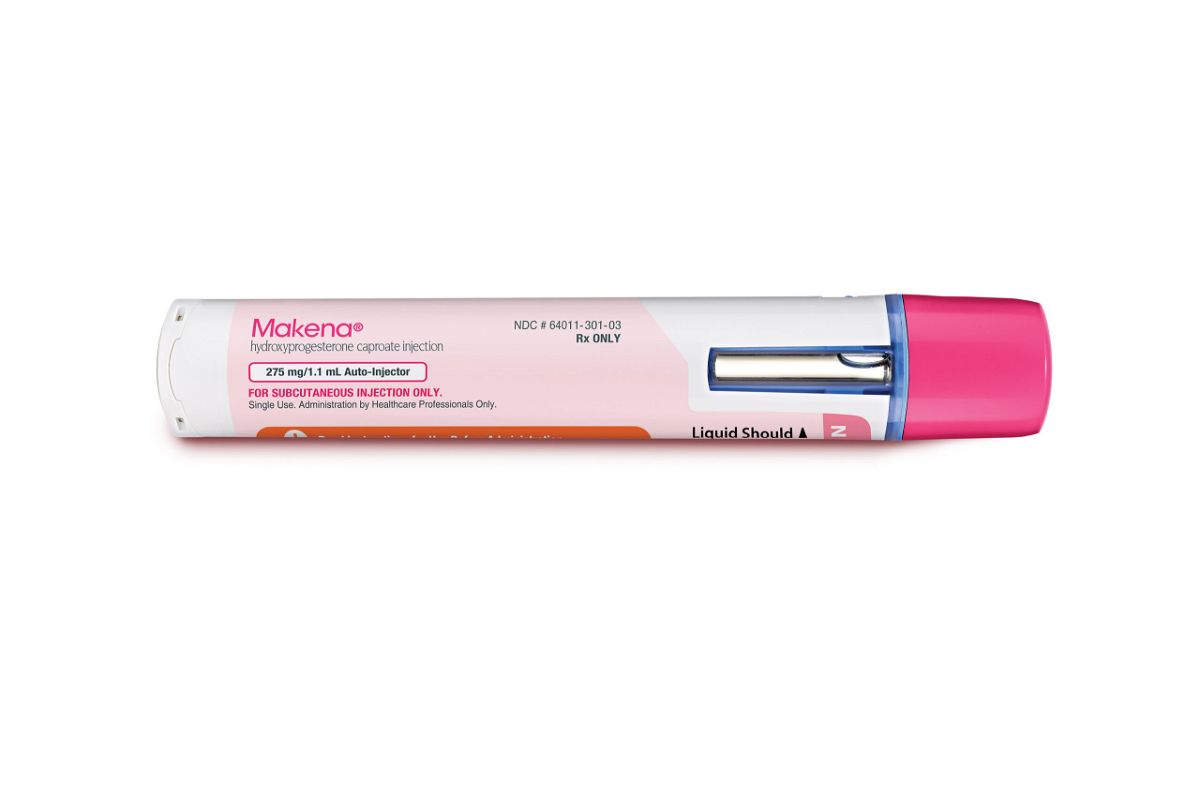FDA advisers vote to recommend preterm birth drug Makena be removed from market

FDA leaders will make a final decision about whether to remove Makena from the market.
By Jamie Gumbrecht, CNN
A US Food and Drug Administration advisory committee voted Wednesday that a drug approved more than a decade ago to reduce the risk of preterm birth should not be allowed to remain on the market after a larger study failed to show that it was effective. It’s now up to FDA leaders to make a final decision about whether to remove the drug from the market.
After a three-day hearing, members of the FDA’s Obstetrics, Reproductive and Urologic Drugs Advisory Committee voted 14-1 that the drug, Makena, should not remain on the market “while an appropriate confirmatory study is designed and conducted.”
The FDA advisory group also voted 15-0 that the postmarket trial didn’t show any benefit to babies and 13-1, with one abstention, that the evidence didn’t show that Makena reduced the risk of preterm birth in women who had had one.
Makena received accelerated approval from the FDA in 2011 as a drug that could reduce the risk of preterm birth in women who have a history of spontaneous preterm birth — the only such drug of its kind. The early trial results were promising, but the agency required a longer study to verify that the drug reduced risk of disease and death from preterm birth for certain babies.
After that larger trial, agency scientists said Makena is no longer shown to be effective, and it has some known risks, including blood clots. Meanwhile, retaining the drug’s approval could hinder the study of other treatments, according to the agency, and would “undermine the accelerated approval pathway,” which fast-tracks promising drugs that fill an unmet medical need.
Dr. Peter Stein, director of the Office of New Drugs in the FDA’s Center for Drug Evaluation and Research, said Wednesday that it was in the best interest of patients for Makena to be removed from the market.
“We heard from many clinicians and patients over the past days, and we heard them very clearly: They want an effective drug on the market and can accept some uncertainty,” Stein said. “So do we, and so can we, if the data and the science support it. But the current data in front of us does not leave us with some uncertainty, it leaves us with a lot of uncertainty.”
Covis Pharma, which makes Makena, proposed conducting a new trial but suggested that physicians would be unlikely to refer patients for a trial of a product that had been withdrawn from the market.
It noted that risk of preterm labor is higher for Black and other minority women and argued that withdrawal of accelerated approval “would have significant negative public health consequences for high-risk pregnant women, including Black and minority women and socially disadvantaged populations.”
In a statement after Wednesday’s meeting, Raghav Chari, Covis’ chief innovation officer, said the company believes that “Makena is effective in a higher-risk patient population.” The company noted that Makena is still approved pending the final decision from the FDA.
“We will work collaboratively with the FDA to clarify the next steps in this process,” Chari said.
Several members of the FDA committee expressed disappointment that the larger trial didn’t show that Makena was effective — and said they hoped Covis would continue with another trial.
Dr. Anjali Kaimal, a professor and vice chair of the Clinical Operations Department of Obstetrics and Gynecology at Morsani College of Medicine University of South Florida, voted that Makena should not remain on the market but said additional study is necessary.
“One hundred percent, there needs to be another trial, because I want to believe that there is a solution for preterm birth and that this might be part of what our instruments could be to try to help people,” Kaimal said after sharing that she had a preterm baby and has faced decisions about her own care. “But I think that when we leave something on the market that hasn’t been shown to be effective, we lose out on other investigations that might be pursued.”
Kaimal said she hoped a future study will show what, if any, population would benefit from taking Makena.
“It is very weighty to think about the most vulnerable populations that we take care of and concern about not giving them access to a treatment that might help them, but … in the same conversation to think that I’m going to give a very vulnerable population an ineffective treatment also just doesn’t seem like the right thing to do.”
The lone vote in favor of keeping the drug on the market while it’s studied was from Dr. Cassandra Henderson, a maternal fetal medicine specialist in New York. She echoed Covis’ concerns that women will be reluctant to enroll in a trial and, rather, may access treatment through compounding pharmacies.
Henderson said the larger trial was too limited, and she’s particularly concerned about Black women.
“If we don’t focus on that target population, we may miss the opportunity to show a benefit of Makena,” she said.
After the voting Wednesday, Annie Ellis, a patient representative on the committee, called the state of neonatal morbidity and inequities “painful on so many levels” and said answers on treatment are needed as quickly as possible.
“It is brutally painful that there’s nothing available in 2022 in the United States of America,” Ellis said.
The-CNN-Wire
™ & © 2022 Cable News Network, Inc., a Warner Bros. Discovery Company. All rights reserved.

